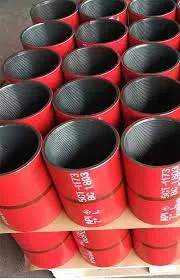- Afrikaans
- Albanian
- Amharic
- Arabic
- Armenian
- Azerbaijani
- Basque
- Belarusian
- Bengali
- Bosnian
- Bulgarian
- Catalan
- Cebuano
- Corsican
- Croatian
- Czech
- Danish
- Dutch
- English
- Esperanto
- Estonian
- Finnish
- French
- Frisian
- Galician
- Georgian
- German
- Greek
- Gujarati
- Haitian Creole
- hausa
- hawaiian
- Hebrew
- Hindi
- Miao
- Hungarian
- Icelandic
- igbo
- Indonesian
- irish
- Italian
- Japanese
- Javanese
- Kannada
- kazakh
- Khmer
- Rwandese
- Korean
- Kurdish
- Kyrgyz
- Lao
- Latin
- Latvian
- Lithuanian
- Luxembourgish
- Macedonian
- Malgashi
- Malay
- Malayalam
- Maltese
- Maori
- Marathi
- Mongolian
- Myanmar
- Nepali
- Norwegian
- Norwegian
- Occitan
- Pashto
- Persian
- Polish
- Portuguese
- Punjabi
- Romanian
- Russian
- Samoan
- Scottish Gaelic
- Serbian
- Sesotho
- Shona
- Sindhi
- Sinhala
- Slovak
- Slovenian
- Somali
- Spanish
- Sundanese
- Swahili
- Swedish
- Tagalog
- Tajik
- Tamil
- Tatar
- Telugu
- Thai
- Turkish
- Turkmen
- Ukrainian
- Urdu
- Uighur
- Uzbek
- Vietnamese
- Welsh
- Bantu
- Yiddish
- Yoruba
- Zulu
Irrigation Pipe Connector Solutions for Efficient Water Management and System Integration
The Importance of Irrigation Pipe Coupling in Agricultural Efficiency
Irrigation plays a vital role in modern agriculture, providing essential water to crops and ensuring optimal growth conditions. Among the various components of an irrigation system, the function and quality of irrigation pipe coupling are critical for maintaining system efficiency and longevity. Understanding the significance of pipe couplings can help farmers and agricultural engineers create more effective irrigation networks.
What is Irrigation Pipe Coupling?
Irrigation pipe coupling refers to the devices or mechanisms used to connect two sections of pipe within an irrigation system. These couplings come in various shapes and sizes, depending on the type of pipes being used, and can be made from different materials such as PVC, polyethylene, or metal. The choice of material not only affects durability and resistance to environmental conditions but also influences the cost and ease of installation.
Types of Irrigation Pipe Couplings
There are several types of pipe couplings that are commonly used in agricultural irrigation systems
1. Threaded Couplings These are typically used with metal pipes and involve screwing one pipe into another. They provide a strong, secure connection but may require special tools for installation.
2. Slip Couplings Made from plastic or metal, these couplings allow two pipes to slide into each end of the coupling. They are easy to install and often used for repairs.
3. Compression Couplings These fit over the ends of pipes and utilize a clamp mechanism to hold them in place. They are versatile and can be used with various types of materials.
4. Barbed Couplings Generally made of plastic, these couplings feature a barbed end that grips the pipe securely. They are particularly useful for flexible tubing in drip irrigation systems.
Why Proper Coupling Matters
irrigation pipe coupling

The efficiency of an irrigation system largely relies on how well the components are connected. Poorly installed or incompatible couplings can lead to leaks, which waste water and reduce the effectiveness of the irrigation system. This not only increases operational costs but can also lead to inadequate water supply to crops, ultimately affecting yield and quality.
Furthermore, the longevity of the piping system is influenced by the couplings used. High-quality couplings that are resistant to corrosion, temperature fluctuations, and physical stress can prevent costly repairs and replacements over time. Choosing the right coupling can also impact the ease of maintenance; for instance, slip and compression couplings are typically easier to install and remove than threaded alternatives.
Choosing the Right Coupling
When selecting an irrigation pipe coupling, several factors should be considered
- Material Compatibility Ensure that the coupling material matches the pipes used in the system to prevent potential chemical reactions or physical degradation.
- Size and Diameter The coupling must fit the pipe's diameter precisely to create a secure seal.
- Environmental Conditions Consider the local climate and soil conditions. Certain materials perform better in extreme temperatures or in contact with corrosive substances.
- Application Type Different irrigation systems, such as drip, surface, or sprinkler irrigation, may require specific types of couplings based on their operational mechanics.
Conclusion
In conclusion, irrigation pipe couplings are essential components of an effective irrigation system. They ensure reliable water distribution to crops, reduce wastage, and enhance the durability of the infrastructure. By understanding the different types of couplings available and their respective advantages, farmers can make informed choices that optimize their irrigation systems for improved agricultural productivity. Investing in high-quality couplings not only conserves water but also promotes sustainable agricultural practices, vital in today’s resource-conscious world. As agricultural challenges continue to evolve, focusing on efficient irrigation systems will remain a priority for achieving food security and environmental sustainability.
-
Tubing Pup Joints: Essential Components for Oil and Gas OperationsNewsJul.10,2025
-
Pup Joints: Essential Components for Reliable Drilling OperationsNewsJul.10,2025
-
Pipe Couplings: Connecting Your World EfficientlyNewsJul.10,2025
-
Mastering Oilfield Operations with Quality Tubing and CasingNewsJul.10,2025
-
High-Quality Casing Couplings for Every NeedNewsJul.10,2025
-
Boost Your Drilling Efficiency with Premium Crossover Tools & Seating NipplesNewsJul.10,2025







